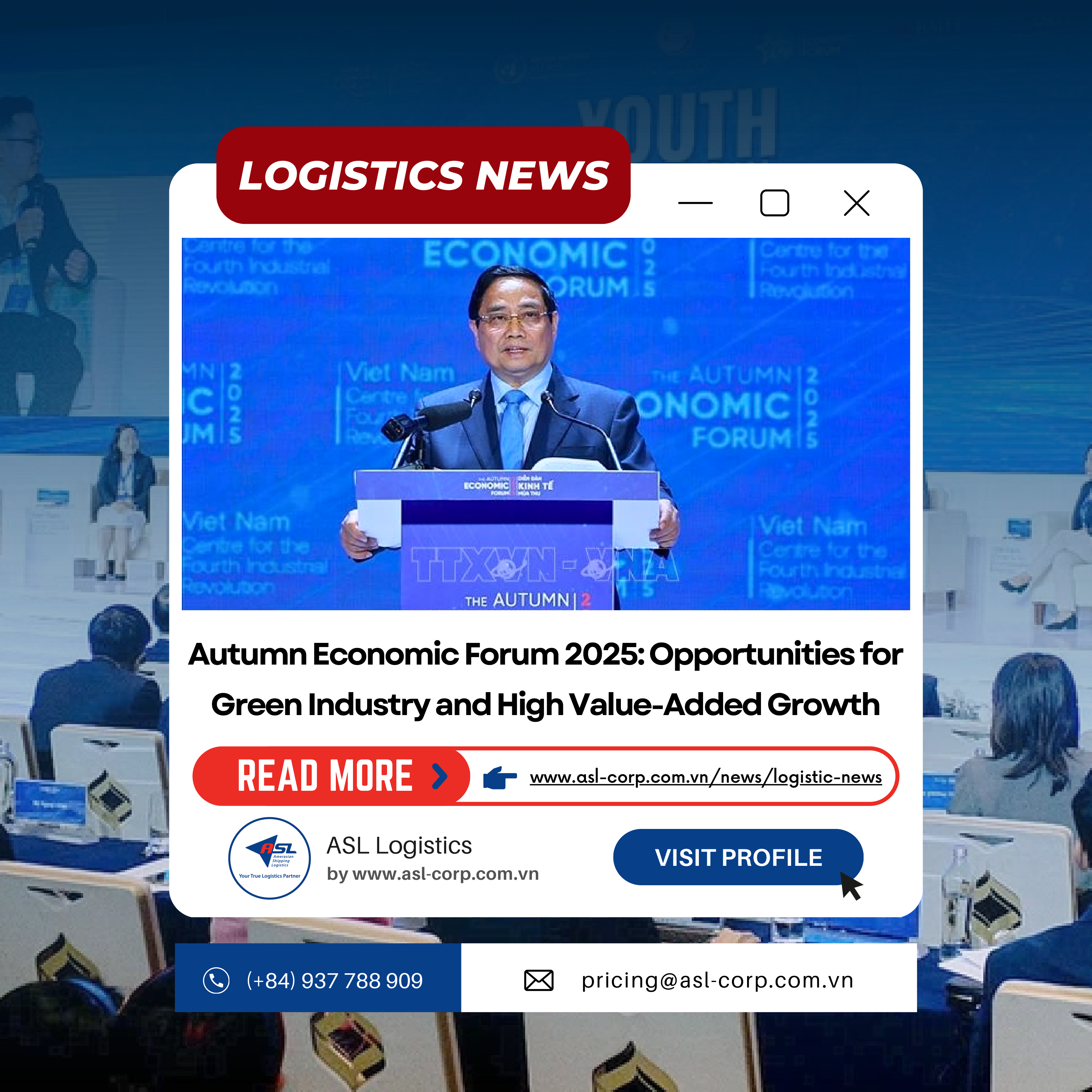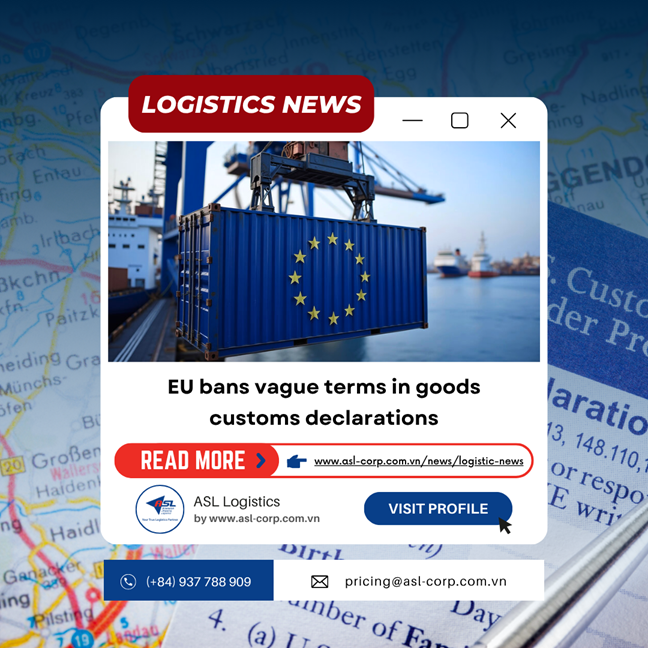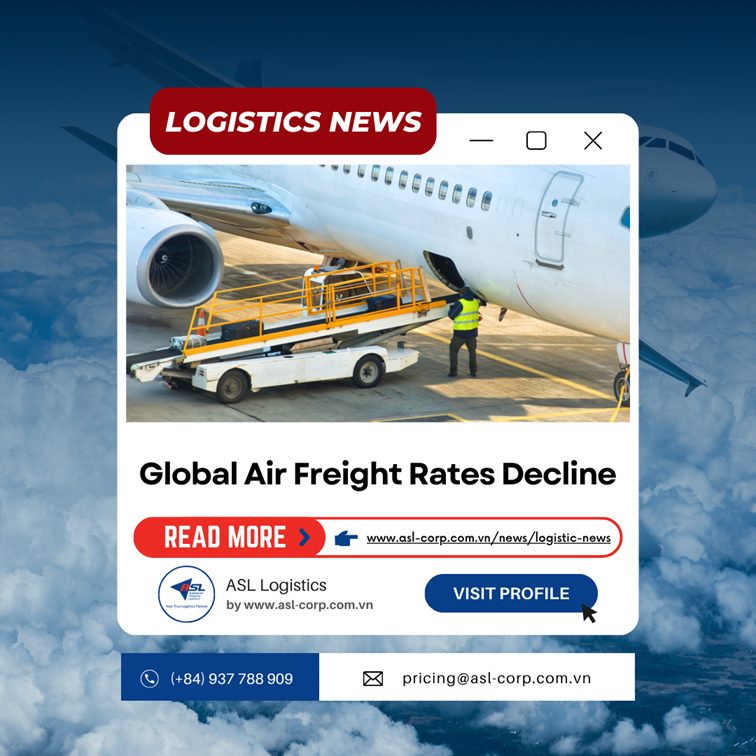Logistic News
ESG IN LOGISTICS: A GLOBAL POLICY SHIFT RESHAPING VIETNAM'S BUSINESSES
15 July 2025
As the global economy enters an era of responsible growth, where a company’s value is measured not only by profits but also by its impact on communities and the environment, ESG is no longer just a “trendy buzzword” — it has become an essential standard for any business seeking long-term survival and sustainable development.
Especially in the logistics industry — which accounts for nearly a quarter of global CO₂ emissions — the ESG wave is creating unprecedented pressure for change. Keeping pace with this global trend, ASL Logistics is proactively transforming itself not only to ensure compliance but also to seize opportunities for sustainable growth.
 - Copy.png)
The Logistics Industry – Directly Impacted by ESG
Logistics operations are inherently tied to numerous factors that exert pressure on the environment, such as transportation, warehousing, refrigeration systems, packaging, and fuel consumption — all of which are critical environmental indicators within ESG frameworks. At the same time, social and governance aspects, including labor conditions, transport safety, data transparency, and supply chain responsibility, have also become mandatory evaluation criteria. As the "crossroads" of many industries, logistics is now being examined through the ESG lens more closely than ever.
Many global corporations have begun requiring their logistics providers to disclose indirect emissions throughout the supply chain (Scope 3). Meanwhile, employees — especially the younger generation — increasingly prioritize working for companies with clear ESG commitments. This compels businesses not only to enhance competitiveness but also to restructure operations to attract talent and maintain trust.
The Global ESG Policy Landscape
In recent years, ESG has become a mandatory requirement in many countries and regions. In the European Union, the CSRD directive has been in effect since 2024, requiring large enterprises to disclose ESG reports on a phased roadmap through 2028. Additionally, the CSDDD directive, effective from July 2024 and to be fully enforced by 2028, mandates control over environmental and social impacts across the entire supply chain.
Concurrently, the ISSB’s IFRS S1/S2 standards have been adopted in over 130 countries, establishing a global ESG disclosure framework. In the U.S., the SEC is also developing climate-related regulations, although progress remains cautious.
These policies are not merely legal obligations but powerful drivers of global sustainable transformation. ESG opens up opportunities to attract FDI, develop carbon markets, advance clean energy, and align with international initiatives such as CSDDD.
In Vietnam, ESG has been integrated into the National Green Growth Strategy 2021–2030, the Law on Environmental Protection 2020, and various business awareness programs — affirming its pivotal role in shaping the country’s development agenda.
Vietnamese Logistics Businesses – Challenge or Opportunity?
As ESG becomes increasingly mandatory, it poses numerous challenges for Vietnamese logistics companies, from complex reporting standards to a lack of proper emission measurement systems. These shortcomings put many businesses at risk of being excluded from global supply chains if they fail to adapt in time.
However, ESG also unlocks significant opportunities. Businesses that comply well can gain access to green financing, attract valuable partners, enhance their reputation, and optimize operations — ultimately reducing costs, increasing efficiency, and building a sustainable competitive advantage.
ASL Logistics – Proactively Leading the ESG Wave
Rather than waiting for pressure from the market or regulations, ASL Logistics has proactively established a comprehensive ESG roadmap starting in 2025, with clear and practical objectives. The first step on this journey was a series of in-depth internal ESG training sessions held on June 14 and 21, 2025 — a solid foundation that equips ASL’s team with the mindset, tools, and processes aligned with international standards for effective implementation.
See more:
The next step is to develop a concrete action plan that includes measuring CO₂ emissions on key transportation routes, establishing an internal ESG management system, and providing comprehensive training for core personnel and management teams. ESG is also being deeply integrated into ASL’s E-pricing platform, service contracts, and overall operational processes, demonstrating a genuine and holistic commitment to sustainable transformation.
With the goal of completing its ESG report by the end of 2025 as a transparent commitment to partners and customers, ASL reaffirms its pioneering role in driving the sustainable transformation of Vietnam’s logistics industry — where economic growth and social responsibility go hand in hand.
Minh Phuc

Head Office
ASL Hồ Chí Minh
Số 31/34A Ung Văn Khiêm, Phường Thạnh Mỹ Tây, TP. Hồ Chí Minh, Việt Nam
 Công Ty Cổ Phần Giao Nhận Vận Tải Mỹ Á
Công Ty Cổ Phần Giao Nhận Vận Tải Mỹ Á
 (+84)28 3512 9759
(+84)28 3512 9759
 (+84)28 3512 9758
(+84)28 3512 9758
 pricing@asl-corp.com.vn
pricing@asl-corp.com.vn
 mdirector@asl-corp.com.vn
mdirector@asl-corp.com.vn
 www.asl-corp.com.vn
www.asl-corp.com.vn
LOGISTICS SERVICES











.png)
.png)
.png)




